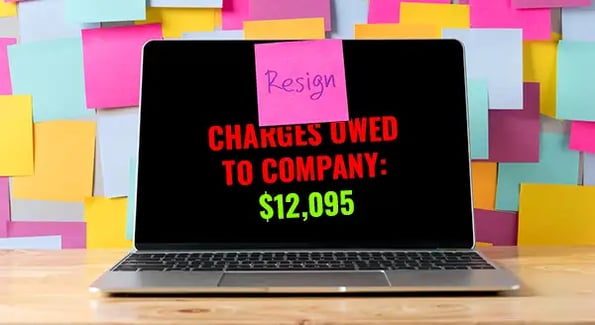
Some workers say their job billed them for… quitting?
Officials are scrutinizing TRAPs, which require employees to reimburse employers for training.
Published:
Updated:
Related Articles
-

-

Where have all the butlers gone?
-

The bot keeping humans out of dangerous silos
-

The US has an accountant problem
-

Your office is too loud — these businesses want to turn down the volume
-

Co-workers are annoying the heck out of each other
-

Should you livestream your layoff?
-

Its 2024, and CEOs and employees are back at it again
-

Are Wikimedia’s exec salaries normal?
-

Private jets have a pilot problem


